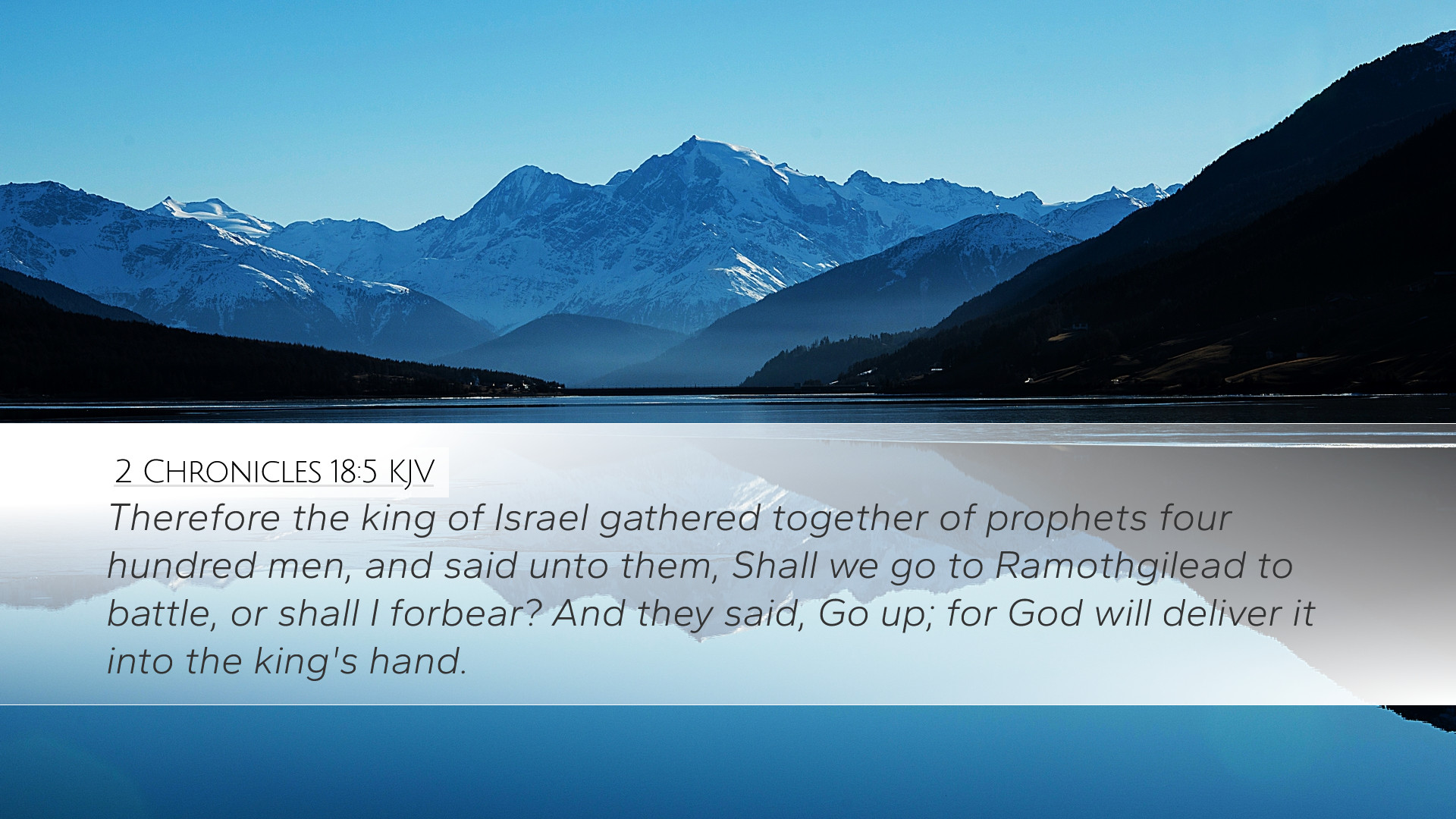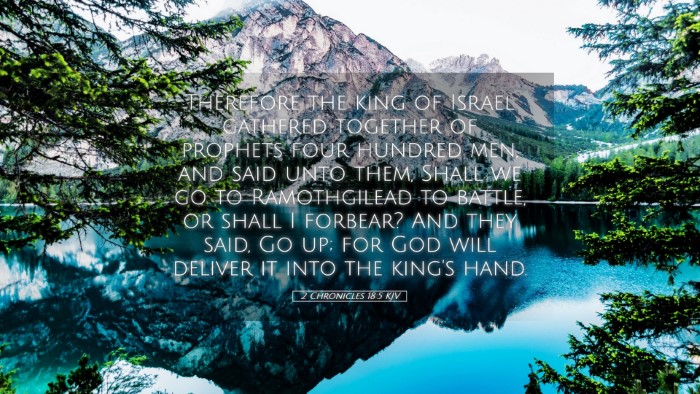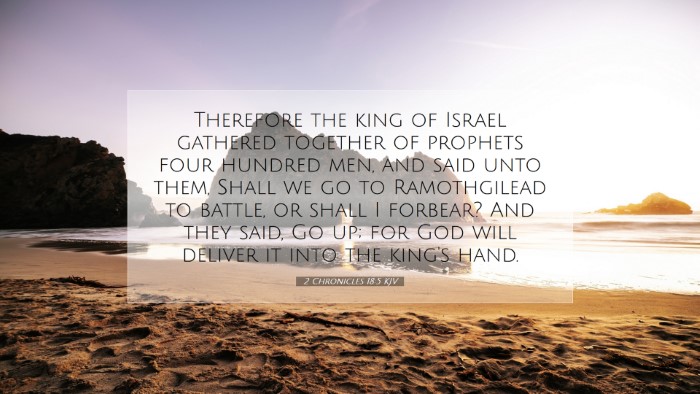Commentary on 2 Chronicles 18:5
Verse: "Therefore the king of Israel gathered together of prophets four hundred men, and said unto them, Shall we go to Ramothgilead to battle, or shall I forbear? And they said, Go up; for God will deliver it into the hand of the king."
Contextual Background
The passage of 2 Chronicles 18 is situated within the narrative that chronicles the reign of Jehoshaphat, king of Judah, and his interactions with Ahab, king of Israel. The historical backdrop of the passage is critical for understanding the dynamics at play between the two kingdoms. Ahab’s contentious rule and his quest for territorial expansion lead to significant events, including this consultation with prophets.
Analysis of 2 Chronicles 18:5
In this verse, we see King Ahab, representing Israel, assembling 400 prophets to seek guidance regarding a military campaign against Ramoth-Gilead. The choice of 400 prophets is noteworthy and speaks to the intent to secure a favorable response.
Gathering of Prophets
Matthew Henry explains that Ahab's decision to gather so many prophets was indicative of the atmosphere of idolatry prevalent at this time. He favored prophets who would prophesy good things about the campaign, aligning with his desires and ambitions rather than seeking genuine counsel from God.
Prophetic Consensus
Albert Barnes discusses the significance of the unanimous approval given by the prophets. They encourage Ahab to go into battle, claiming that God would deliver Ramoth-Gilead into his hands. This reflects a manipulation of divine authority, as these prophets likely spoke out of self-interest or the pressure of Ahab's expectations.
The Nature of False Prophecy
Adam Clarke notes that the prophets’ response highlights a critical theme of the passage—the concept of false prophecy. This illustrates how one can easily fall into the trap of seeking approval rather than truth. These prophets embodied a significant danger, as their messages were contrary to what God would genuinely have revealed had they been true spokespeople for the Lord.
Implications for Leadership and Discernment
The actions of Ahab and his prophets in 2 Chronicles 18:5 raise vital questions about leadership, discernment, and the integrity of those who claim to speak for God. Leaders seeking guidance on significant decisions must ensure they are listening to genuine voices rather than simply surrounding themselves with yes-men.
- Integrity in Leadership: Ahab’s character and his choice of prophets reveal a deeper truth about the moral state of leaders. Good leaders must seek counsel that challenges them and aligns with the will of God, rather than mere affirmation of their desires.
- The Role of True Prophets: Genuine prophets are those who speak truth, even when it contradicts the desires of those in power. The courage to deliver a challenging message is essential in the prophetic office.
- Discernment Among Followers: Followers of leaders must cultivate discernment and not accept every message as divine truth, especially when it aligns too conveniently with personal desires.
Conclusion
In summary, 2 Chronicles 18:5 serves as a cautionary tale in the context of spiritual and communal leadership. The gathering of 400 prophets who affirm Ahab’s plans highlights the importance of seeking authentic divine guidance and the dangers of false prophecy. Pastors, theologians, and scholars must remind themselves and their communities to pursue truth and integrity in their decision-making processes, seeking counsel that is rooted in Scripture and guided by the Holy Spirit.
As we reflect on this verse, let us remember to align our pursuits with God’s will, actively affirming the voice of the true prophet amidst the cacophony of falsehood that may seek to pervade our spiritual communities.


